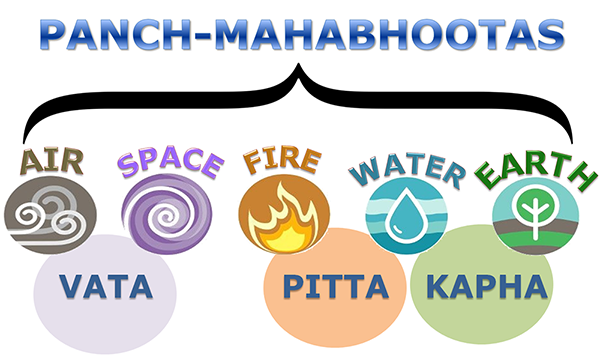Importance of Ayurveda
Ayurveda is an ancient tradition focused on health care and well-being of human race. It is known to have been practiced in India for atleast 5000 years. The word Ayurveda is derived from the Sanskrit terms ayur (life) and veda (knowledge). The knowledge of ancient ayurvedic medicines is documented in the religious texts which originated in India, many centuries ago. It is known that 90% of the Indian subcontinent uses some form of ayurvedic medicines for various illnesses. Ayurvedic system of medicine is free from any adverse effects. It is safe, economic, efficacious, along with being restorative, rejuvanative and constructive in its nature. The science of ayurveda stands firm on the principals of Panchmahabhootas (The Earth, Water, Fire, Wind and Space) and the three Doshas (Vata, Pitta and Kapha).
According to Ayurvedic principles, the health care system is a highly individualized practice. It is believed that everyone has a specific body constitution or prakruti, which defines ones disease vulnerability, physical, physiological and psychological qualities. Ones prakruti is primarily determined by the presence of the three Doshas. Though every individual has got all the three Doshas, the proportion varies. While among the three, there are one or two Doshas that predominate.
Speaking more about the prakruti, we give a detailed insight to how the three Doshas are linked to the five Panchmahabhootas.

Vata energy is linked to air and space, and contributes towards the bodily movements like breathing and blood circulation. Creative and original thinkers are the ones where the vata energy dominates. When out-of balance, vata can endure joint pain, anxiety, constipation to name a few.
Pitta energy is connected to fire and water, and is believed to control the endocrine and the digestive systems. Individuals with high pitta energy are more fiery in temperament and fast-paced. As pitta is linked to fire, any imbalance in it results in ulcers, inflammation, digestive problems, anger, arthritis and heartburn.
Kapha energy is the one associated to earth and water, and it controls growth, stamina and strength. It is linked to chest, torso and back. Kapha types are calm, strong and solid in nature. However, its imbalance can lead to obesity, diabetes, insecurity and sinus problems.
According to the Ayurvedic practitioners, factors like stress, lifestyle, unhealthy diet, weather and strained relationships can disturb the balance of the three Doshas. Such an imbalance set of energies makes the person more susceptible to diseases.

 Mobile No.:
Mobile No.: